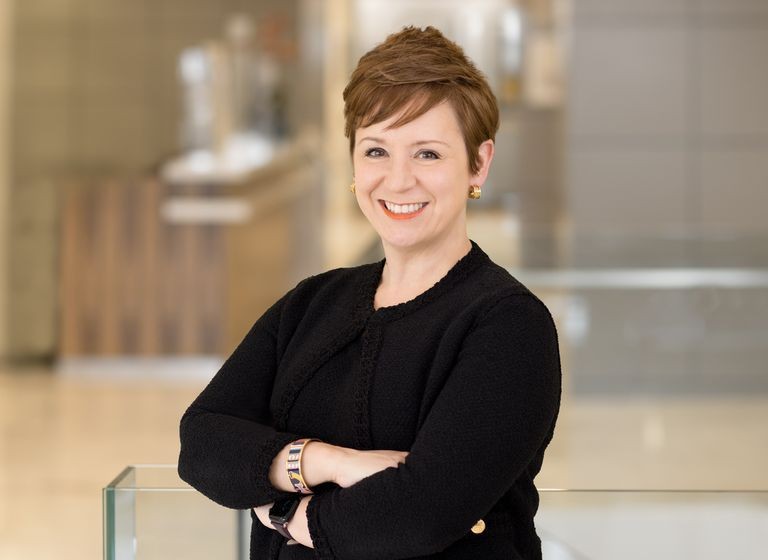Sadina Montani
Overview
Employers are facing increasingly complex compliance, cultural, and litigation matters—and Sadina Montani is a trusted adviser in each of these areas. Privately held and publicly traded corporations, think tanks, foundations, retailers, and nonprofits rely on her to help navigate the full range of employment-related issues.
Career & Education
- Western Michigan University, B.M., cum laude, 2002
- The George Washington University, M.A., cum laude, 2005
- The George Washington University Law School, J.D., 2008
- District of Columbia
- Maryland
- Virginia
- Supreme Court of the United States
- U.S. District Court for the Eastern District of Virginia
- U.S. District Court for the Western District of Virginia
- U.S. District Court for the District of Colorado
- U.S. District Court for the District of Columbia
- U.S. District Court for the District of Maryland
- U.S. Court of Appeals for the Fourth Circuit
- U.S. Court of Appeals for the Eleventh Circuit
Professional Activities and Memberships
- Ayuda, Chief Governance Officer, Board of Directors
- Women’s Bar Association of the District of Columbia
- Chair, Advocacy Committee, 2021-2022
- President, 2020-2021
- President-Elect, 2019-2020
- Treasurer, 2016 - 2017
- Board Member, 2015 - 2022
- Membership Committee, Co-Chair, 2011 - 2015
- Greater D.C. Diaper Bank
- Chair, Board of Directors, 2019 - 2022
- Board of Directors, 2017 - 2024
- Greater Washington Area Chapter (GWAC), Women Lawyers Division, National Bar Association, Member
- District of Columbia Bar
- Labor and Employment Section, Member
- John Payton Leadership Academy, Inaugural Class, 2013
- Screening Committee, 2015 - 2016
- Nominations Committee, Chair, 2015
- Leadership Development Committee, 2017 - 2020
- American Bar Association, Labor and Employment Section, Member
Sadina's Insights
Client Alert | 4 min read | 04.24.24
Muldrow Case Recalibrates Title VII “Significant Harm” Standard
On April 17, 2023, the Supreme Court handed down a unanimous decision in Muldrow v. City of St. Louis, Missouri, No. 22-193, holding that transferees alleging discrimination under Title VII of the Civil Rights Act of 1964 need only show that a transfer caused harm with respect to an identifiable term or condition of employment. The Court’s decision upends decades of lower court precedent applying a “significant harm” standard to Title VII discrimination cases. As a result, plaintiffs claiming discrimination under Title VII will likely more easily advance beyond motions to dismiss or motions for summary judgment. In the wake of the Court’s decisions in Students for Fair Admissions, Inc. v. President and Fellows of Harvard College (6-2), No. 20-1199, and Students for Fair Admissions, Inc. v. Univ. of North Carolina (6-3), No. 21-707 (June 29, 2023), Muldrow will also likely continue to reshape how employers conceive of, implement, and communicate workplace Diversity, Equity and Inclusion (“DEI”) efforts. The decision may be used by future plaintiffs in “reverse” discrimination actions to challenge DEI or affinity programs that provide non-economic benefits to some – but not all – employees. For example, DEI programs focused on mentoring or access to leadership open only to members of a certain protected class could be challenged under Muldrow by an employee positing that exclusion from such programs clears this new, lower standard of harm.
Press Coverage | 03.25.24
Representative Matters
- Achieved dismissal of multiple lawsuits challenging retailer’s enforcement of mask mandates during the COVID-19 pandemic.
- Defended an international commercial real estate company against claims of federal and state wage and hour violations in three related putative class actions in federal court in California, Colorado, and Washington, D.C.
- Successfully defended large government contractor against employee nonsolicitation and tortious interference claims; obtained complete defense award, including assessment of significant attorneys' fees, costs, and arbitrator fees against claimant.
- Won a jury trial in federal court in Miami, Florida on behalf of a global corporation in which a former employee claimed age discrimination, and subsequent appeal before the Fourth Circuit Court of Appeals.
- Achieved dismissal of a lawsuit in state court in Tampa, Florida on behalf of a global technology company where a former employee claimed race discrimination, harassment, and retaliation.
- Won summary judgment in Maryland state court on behalf of a global corporation defending against a claim related to the miscalculation of commission payments.
- Won summary judgment in federal court in Montgomery County, Maryland on behalf of a government contractor in which a former employee claimed gender discrimination and retaliation.
- Represent federal contractors in connection with defense of Sarbanes-Oxley whistleblower and False Claims Act claims.
- Defended large radiology group and individual physicians against claims by former employed physician of discrimination, defamation, and tortious interference with a future employment opportunity; obtained complete defense award in favor of all respondents on all counts, including assessment of all arbitrator fees and costs against claimant.
Sadina's Insights
Client Alert | 4 min read | 04.24.24
Muldrow Case Recalibrates Title VII “Significant Harm” Standard
On April 17, 2023, the Supreme Court handed down a unanimous decision in Muldrow v. City of St. Louis, Missouri, No. 22-193, holding that transferees alleging discrimination under Title VII of the Civil Rights Act of 1964 need only show that a transfer caused harm with respect to an identifiable term or condition of employment. The Court’s decision upends decades of lower court precedent applying a “significant harm” standard to Title VII discrimination cases. As a result, plaintiffs claiming discrimination under Title VII will likely more easily advance beyond motions to dismiss or motions for summary judgment. In the wake of the Court’s decisions in Students for Fair Admissions, Inc. v. President and Fellows of Harvard College (6-2), No. 20-1199, and Students for Fair Admissions, Inc. v. Univ. of North Carolina (6-3), No. 21-707 (June 29, 2023), Muldrow will also likely continue to reshape how employers conceive of, implement, and communicate workplace Diversity, Equity and Inclusion (“DEI”) efforts. The decision may be used by future plaintiffs in “reverse” discrimination actions to challenge DEI or affinity programs that provide non-economic benefits to some – but not all – employees. For example, DEI programs focused on mentoring or access to leadership open only to members of a certain protected class could be challenged under Muldrow by an employee positing that exclusion from such programs clears this new, lower standard of harm.
Press Coverage | 03.25.24
Practices
Industries
Sadina's Insights
Client Alert | 4 min read | 04.24.24
Muldrow Case Recalibrates Title VII “Significant Harm” Standard
On April 17, 2023, the Supreme Court handed down a unanimous decision in Muldrow v. City of St. Louis, Missouri, No. 22-193, holding that transferees alleging discrimination under Title VII of the Civil Rights Act of 1964 need only show that a transfer caused harm with respect to an identifiable term or condition of employment. The Court’s decision upends decades of lower court precedent applying a “significant harm” standard to Title VII discrimination cases. As a result, plaintiffs claiming discrimination under Title VII will likely more easily advance beyond motions to dismiss or motions for summary judgment. In the wake of the Court’s decisions in Students for Fair Admissions, Inc. v. President and Fellows of Harvard College (6-2), No. 20-1199, and Students for Fair Admissions, Inc. v. Univ. of North Carolina (6-3), No. 21-707 (June 29, 2023), Muldrow will also likely continue to reshape how employers conceive of, implement, and communicate workplace Diversity, Equity and Inclusion (“DEI”) efforts. The decision may be used by future plaintiffs in “reverse” discrimination actions to challenge DEI or affinity programs that provide non-economic benefits to some – but not all – employees. For example, DEI programs focused on mentoring or access to leadership open only to members of a certain protected class could be challenged under Muldrow by an employee positing that exclusion from such programs clears this new, lower standard of harm.
Press Coverage | 03.25.24






